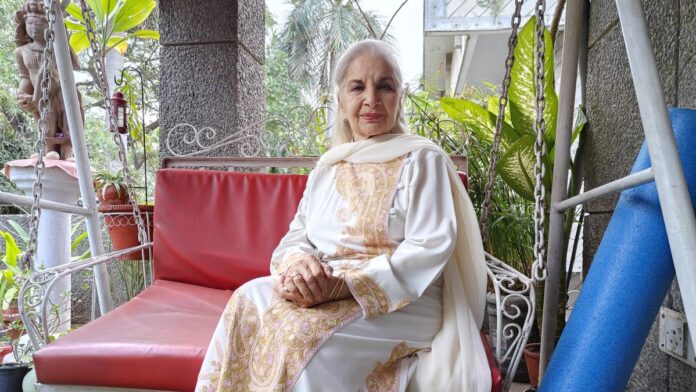Reviewing the performance of Sushma Seth as Katherine in Shakespeare’s The Taming of the Shrew, theatre critic Walter Gardner wrote, “I have never seen an actress in India act with such abandon; she really kicked and bit her way through the part.”
Not much has changed since the 1960s. Give it to the magic of yoga or to her boundless spirit, Sushma continues to belie stereotypes. At 86, her memory is sharp and her demeanour sassy. Immaculately dressed, she invites us to the balcony of her beautiful home in New Friends Colony to have a photo shoot before twilight gets the better of her shining visage; she was conferred with the prestigious Lifetime Achievement Award at the Mahindra Excellence in Theatre Awards (META) 2023 on Wednesday evening. An excellent actor and director, Sushma has contributed to every department of theatre and worked to make the stage an equal space.
Sushma grew up in a progressive Delhi family where, as she puts it, men folk were mostly into sports and women gravitated towards the arts. Her uncle Maheshwar Dayal was an exception. An actor and a playwright, he wrote three plays for his niece as he saw something in her. “I had a flair for the difference even then. In one of the plays that I performed in front of Raj Kapoor, I played a nawab and in another, I played an old lady with a Haryanvi accent.”
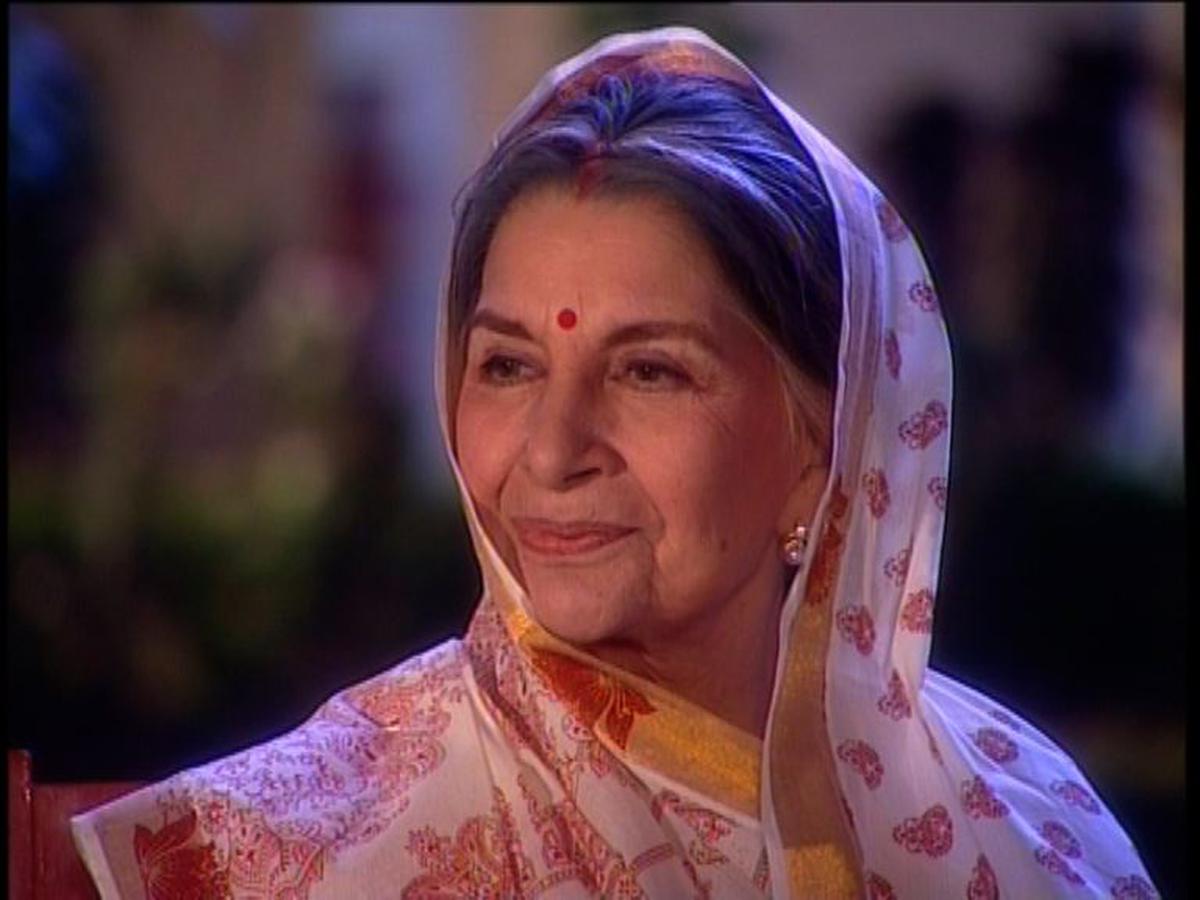
Sushma Seth
As fate would have it, years later she played the role of a grandmother in Hum Log whose dialogues too had a Haryanvi flavour. The iconic series is playing on a DTH platform these days. Sushma says Dadi hasn’t aged. “When it was first aired, everybody said they had someone like her at home. I think it still holds true for the character who is a little aggressive, fun-loving, and contrary to the stereotypical grandmothers who were either too shrill or grovelling.”
Sushma recalls how she dressed up the character with her mother’s clothes and how she used to get a sackful of fan mail that she used to answer during breaks between scenes. “Women wanted Dadi to solve problems in their personal life. Some girls also showed up at the door. Once a girl beseeched me that she wanted to live with me because her in-laws had made her life hell. I had to make calls to her mother to sort out the situation.”
Sushma learnt the nuts and bolts of theatre at Briarcliff College and Carnegie Mellon in the US on scholarship. It gave her a head start but it created its own share of perceptions. Seth remembers when she was looking to find a footing, Joy Michael, with whom she founded the popular Yatrik theatre group, used to take English pronunciation classes for those appearing in the interview of the Indian Administrative Services.
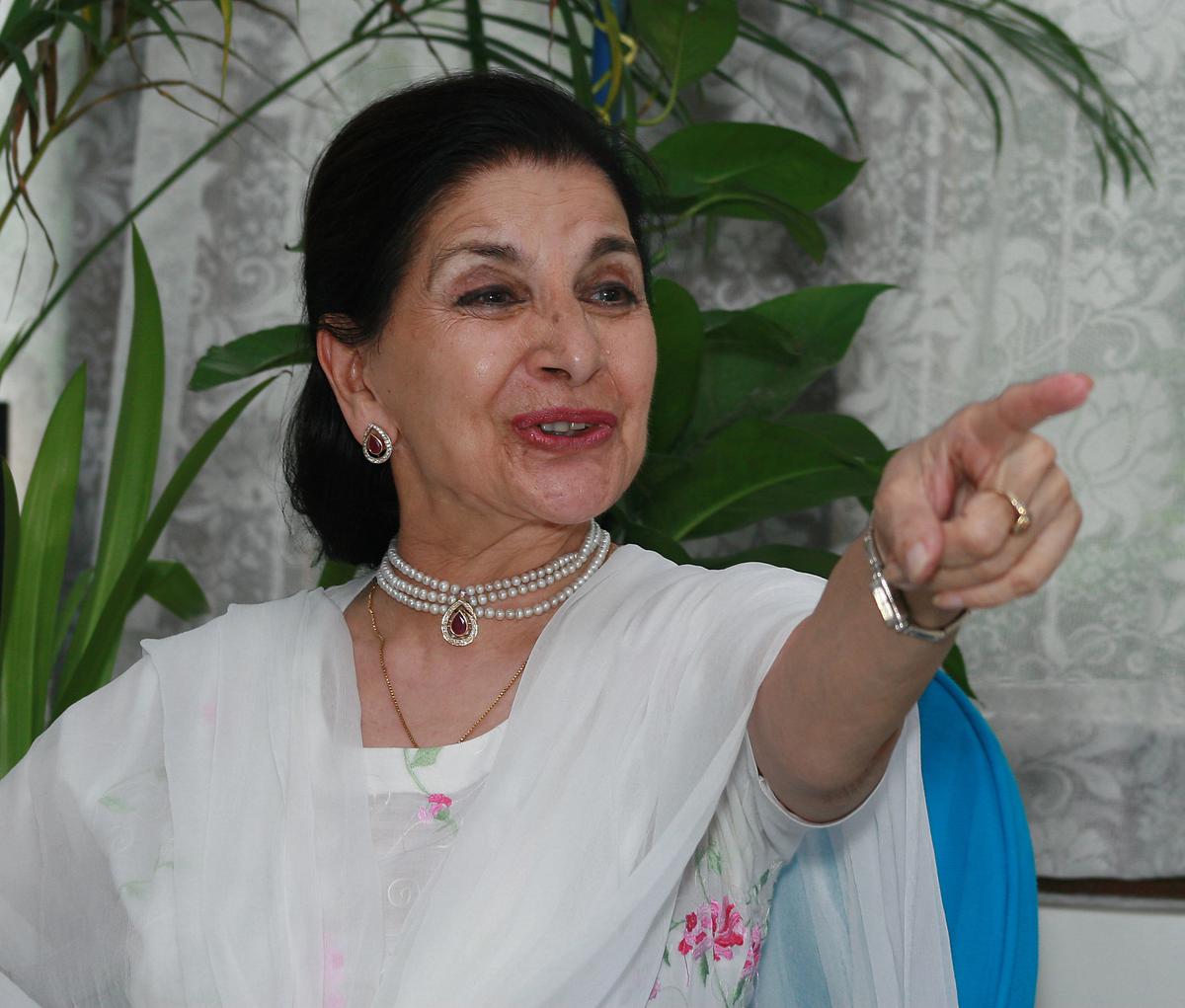
Sushma Seth
| Photo Credit:
Shiv Kumar Pushpakar
“As she was in the family way, I filled in for her for a few months after I returned from the US. The centre was in Shankar Market where most theatre groups rehearsed. As luck would have it, Habib Tanvir’s group was mounting Rustom Sohrab and an actor who was playing an important role had to give up the assignment at the eleventh hour. Somebody told Habib sahib that I was around. He sent someone just to check whether I spoke in aata hai jaata hai kind of stilted English. And once he was convinced, I got to play the beautiful part of Gurdafini.”But acting in front of the camera was not new for Sushma as she used to do teleplays for Doordarshan in the 1960s. She regrets that the rich archival material got lost because nobody thought to preserve it. “They kept recording on the same tapes.”
But when Shyam Benegal offered her a significant role in Junoon, she realised there was a difference. “In theatre, we perform scenes in a sequence. So the emotions build up naturally. Films are not shot in order. In Junoon, we started with the scene when the dead body of my son is brought. Since early morning, I was worried about how will I cry at the sound of action. I tried to think of the worst possible things that could happen to him. Eventually, when the time came, the tears came on cue. As I finished, Shyam said, now let’s take the close-up. I said but my tears are finished. He casually replied, use glycerine! It was my first brush with how cinema works. Unlike theatre, you can’t even slightly overdo here.”
When the film released, Sushma discovered the massive reach of the medium. “I had played the leading lady on the Delhi stage for 20 years but when Junoon released, many of my acquaintances who had no time for theatre, said, “You act!”
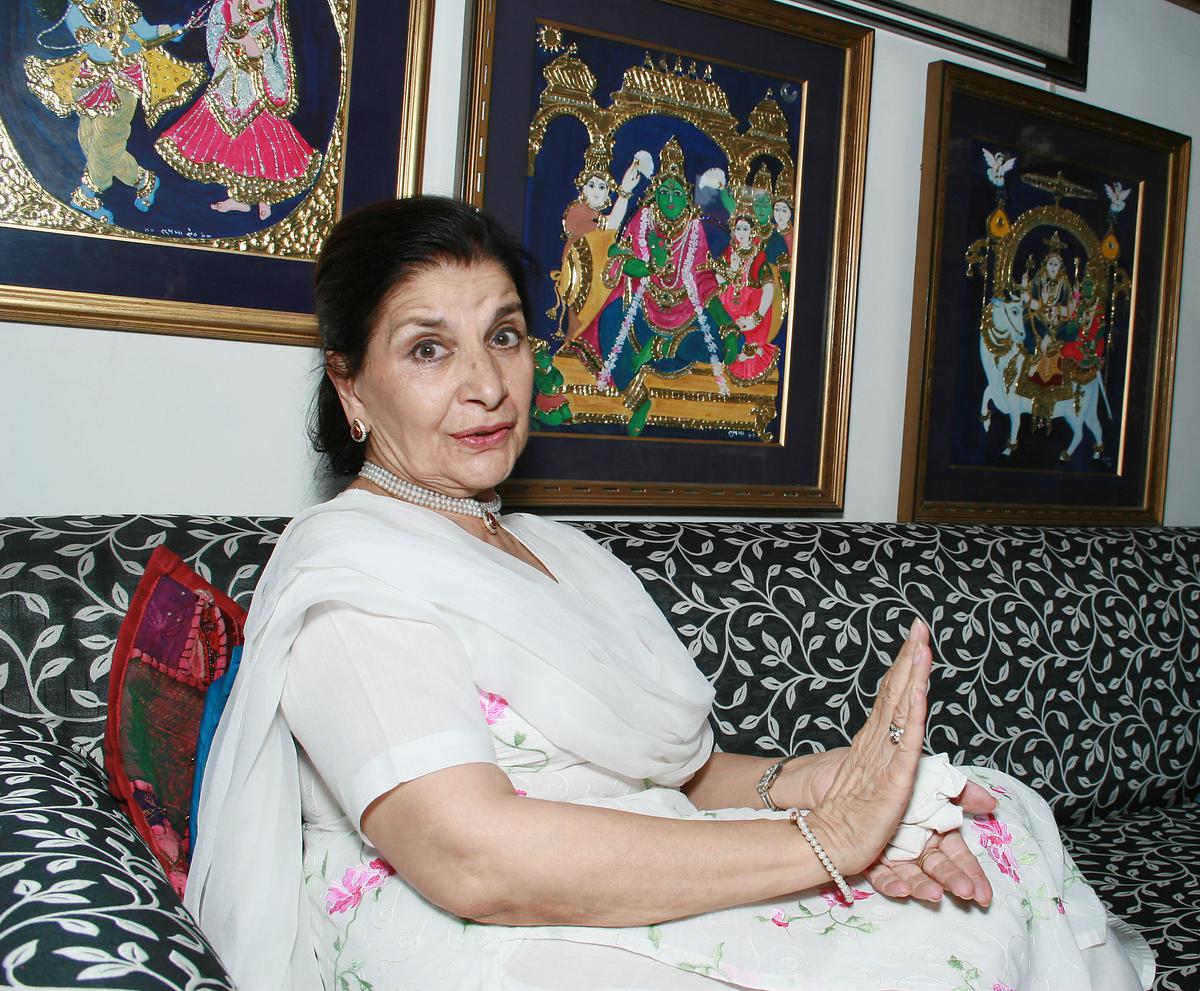
Sushma Seth during an interview at her residence, in New Delhi
| Photo Credit:
Shiv Kumar Pushpakar
After that, there was no looking back as Sushma got to showcase her range and contributed to every department on stage. “I was accepted as Rano in Ek Chadar Maili Si, Champa in Sakharam Binder as well as a black woman in Moon in a Rainbow Shawl. There was never a question of image.” Sushma says she had no inclination to move to films. “There was hardly any money in theatre but I was happy doing plays and had no time to even watch films. At any given time we would be working on three plays and carrying props from home to dress up the stage.”
She went on to work with the best in business, including Raj Kapoor and BR Chopra, in films like Prem Rog and Tawaif.
“Raj Kapoor had the habit to make the artist feel important. He would gently put the seed of what he wanted into the head and then make me feel that it was I who made it special.”
Once the shooting was complete, Sushma says she was a housewife and a mother. “I never checked how the film performed or made time to be at muhurats, premieres, and parties.” In her 40s, she played mother to an actor equal to or older than her but Seth says in those days the heroine’s age was between 16-40. “I said no to regressive, palatable words, and many times lines were changed on my request. In Shandar, I protested when the makers made me do things that I resisted doing all my life but then that character was something!”
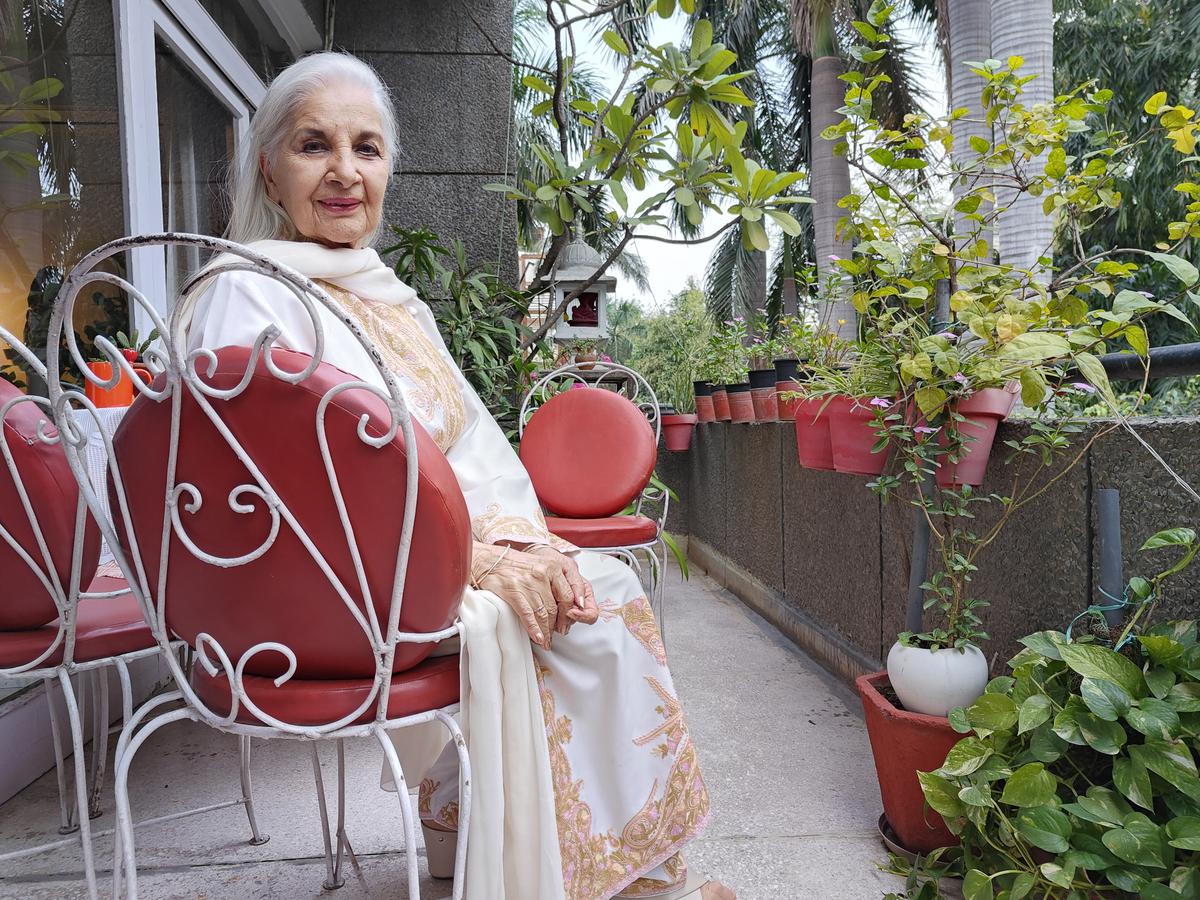
Sushma Seth
| Photo Credit:
Anuj Kumar
Sushma says theatre is in safe hands and patrons like META are making it remunerative but misses playwrights like Vijay Tendulkar and Badal Sircar. “I find the ability to say something meaningful in a fun and entertaining way is missing these days. This generation loves to talk directly.”
#Dadi #hasnt #aged #magic #Sushma #Seths #boundless #spirit
